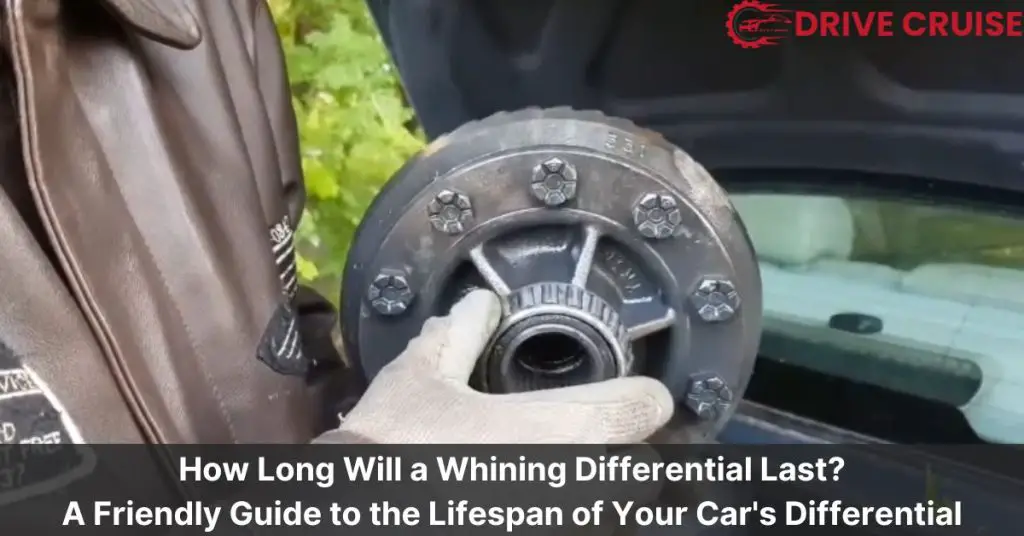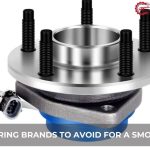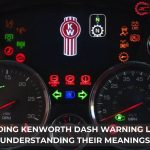You’re driving down the road, and suddenly you hear a strange whining noise coming from your vehicle’s rear end. You’re not sure what it is, but it’s definitely not normal. The noise could be a result of a whining differential, which is a common issue that many drivers experience. A whining differential can be a disconcerting symphony for any driver. It disrupts the driving experience and raises concerns about potential breakdowns. This guide delves into the complexities of a whining differential, exploring the various causes, the factors influencing its lifespan, and the warning signs that shouldn’t be ignored.
The lifespan of a whining differential varies, lasting from a few days to a few months. However, the exact number of days a differential will last will depend on the extent of its damage. A whining differential can be caused by a variety of factors, including worn or damaged gear teeth, low or contaminated differential fluid, and worn bearings. It’s important to address these issues as soon as possible to prevent further damage to your vehicle. In this guide, we’ll discuss how to diagnose a whining differential, how to fix it, and how to prevent it from happening again.
Diagnosing the Whine: Unveiling the Culprits
If you’re hearing a whining noise coming from your differential, it could be a sign of a problem. In this section, we’ll explore the most common culprits behind a whining differential and how to diagnose them.
Bearing on the Brink: Worn or Damaged Differential Bearings
Differential bearings are responsible for supporting the rotation of the axle shafts and gears within the differential unit. Over time, bearings can wear due to age, high mileage, or excessive stress. Worn bearings often generate a high-pitched whining noise that intensifies with vehicle speed.
If you suspect worn or damaged differential bearings are the cause of the whining noise, you can inspect them by removing the differential cover and checking for any signs of wear or damage. If you see any metal shavings or debris, it’s a sign that the bearings are worn and need to be replaced.
Gear Up for Trouble: Worn or Damaged Differential Gears
Differential gears distribute torque between the left and right wheels, allowing them to rotate at different speeds during cornering. Worn or damaged gear teeth can create a grinding or growling noise, sometimes accompanied by a whine. Gear wear can progress quickly, leading to more pronounced noises and potential differential failure.
To diagnose worn or damaged differential gears, you can inspect them by removing the differential cover and checking for any signs of wear or damage. Look for any chipped or broken gear teeth, which are a sign that the gears need to be replaced.
Low on Lube: Inadequate Differential Fluid
Differential fluid lubricates the bearings and gears, reducing friction and wear. Low differential fluid levels can cause increased friction and metal-to-metal contact, leading to a whining noise. Using the incorrect differential fluid type can compromise its lubricating properties and contribute to noise.
To diagnose inadequate differential fluid, you can check the fluid level by removing the fill plug on the differential cover and looking inside with a flashlight. If the fluid level is low, you can add more fluid until it reaches the appropriate level. If you suspect the wrong fluid type has been used, you can drain the differential fluid and refill it with the correct type.
The Clock is Ticking: How Long Will it Last?
When it comes to the lifespan of a whining differential, there’s no one-size-fits-all answer. The longevity of your differential depends on several factors, including the severity of the whine, the underlying cause, and your driving habits.
Severity of the Whine
If you hear a faint whine, it might not cause immediate problems. However, a loud and persistent whine indicates a more critical issue that requires prompt attention. If you ignore the whine, it could lead to more severe damage, causing your differential to fail prematurely.
Underlying Cause
The specific cause of the whine plays a crucial role in determining how long your whining differential will last. For instance, worn bearings might deteriorate faster than a low fluid level. Regular maintenance, such as replacing worn bearings or topping up the fluid level, can help extend the lifespan of your differential.
Driving Habits
Your driving habits can also affect the lifespan of your whining differential. Aggressive driving habits or towing heavy loads can put additional stress on the differential, accelerating wear and tear. If you frequently drive in harsh conditions or tow heavy loads, you may need to replace your differential sooner than someone who drives more conservatively.
Warning Signs You Shouldn’t Ignore: When to Take Action
Ignoring a whining differential can lead to costly repairs down the road. Here are some warning signs to look out for, that indicate when to seek professional help.
- Whining Intensity: A progressively louder or more persistent whine signifies a worsening problem. If you hear a whining noise while driving, it’s important to pay attention to how loud it is. If the noise gets louder or more persistent over time, it’s a sign that the problem is getting worse. Don’t ignore it, as this could lead to more severe damage to your differential.
- Metal Grinding: Grinding noises alongside the whine suggest potential gear damage, requiring immediate attention. If you hear a grinding noise along with the whine, it’s a sign that there may be damage to the gears in your differential. This is a serious problem that requires immediate attention. Continuing to drive with damaged gears can cause even more damage to your differential, leading to more costly repairs.
- Seized Differential: In the worst-case scenario, a completely seized differential can render the vehicle immobile. If your differential seizes up completely, you won’t be able to drive your vehicle. This is a serious problem that requires immediate attention. If you notice that your vehicle is becoming more difficult to drive, or if it won’t move at all, it’s important to get your differential checked out as soon as possible.
Taking Charge: Addressing the Whine
If you hear a whining noise coming from your car’s differential, it’s important to address the issue as soon as possible. The longer you wait, the more damage the differential may sustain, and the more expensive the repairs may become. Here are some steps you can take to address the whine:
Step 1: Check the Differential Fluid
Low or dirty differential fluid can often be the cause of a whining noise. Check your owner’s manual to determine the correct type of fluid for your vehicle, and ensure that the fluid level is correct. If the fluid is dirty or low, you can remedy the issue with a fluid change and refill using the correct fluid type.
Step 2: Inspect the Bearings
Worn bearings can also cause a whining noise. Inspect the bearings for any signs of wear or damage. If you notice any issues, it’s best to have them professionally replaced to restore proper operation and eliminate the whine.
Step 3: Consider a Differential Rebuild or Replacement
If the whine persists after checking the fluid and inspecting the bearings, it’s possible that there is severe damage to the gears or internal components. In this case, a differential rebuild or, in extreme cases, a complete differential replacement may be necessary. It’s best to consult with a professional mechanic to determine the appropriate course of action.
Prevention is Key: Maintaining a Healthy Differential
To prevent a whining differential, it is important to maintain a healthy differential. Here are some tips to keep your differential in good condition.
Regular Differential Fluid Service
Maintain the differential fluid according to the manufacturer’s recommendations to ensure proper lubrication and minimize wear. Regular differential fluid service can help prevent a whining differential. The differential fluid should be changed at regular intervals, as specified in the owner’s manual. A differential fluid service includes removing the old fluid, cleaning the differential, and adding new fluid. Regular differential fluid service can help prevent serious problems.
Avoiding Overloading
Avoid exceeding the vehicle’s weight capacity, as overloading puts excessive stress on the differential. Overloading can cause the differential to overheat, which can lead to a whining sound. Be sure to check the vehicle’s weight capacity before loading it with heavy items. Overloading can cause serious damage to the differential, so it is important to avoid it.
Listening to Your Car
Pay attention to any unusual noises coming from the drivetrain. Early detection of a whine can prevent more serious problems. If you hear a whining sound coming from the differential, it is important to have it checked by a professional. Ignoring the sound can lead to serious problems, such as complete differential failure. So, it is important to pay attention to your car and take action as soon as you hear any unusual noises.
Conclusion: Silence the Whine, Save Your Ride
In conclusion, a whining differential can be a serious issue that can affect the lifespan of your car. The lifespan of a differential can be affected by several factors such as the type of car it is in, how often it is serviced, and how frequently it is used. Therefore, it is essential to keep your differential healthy and address any issues promptly.
When it comes to addressing a whining differential, there are several steps you can take. First, try to identify the cause of the whine. This may involve inspecting the differential for signs of wear or damage. Once you have identified the cause, you can take steps to address it, such as replacing worn seals or changing the differential fluid.
Related Posts:
- AC Only Works When Driving: Common Causes and Solutions
- Can You Get a Flat Tire from Hitting a Curb? Exploring the Possibility
- Car Shaking After Getting New Tires: Possible Causes and Solutions
- What Causes Grooves in Brake Rotors? A Brief Explanation
- How Far Can You Go on 0 Miles to Empty? Tips for Stretching Your Fuel Tank
- How Long Will a Whining Differential Last? A Friendly Guide to the Lifespan of Your Car’s Differential
- Mini Cooper Warning Symbols: What They Mean and How to Respond
- Rear Light Failure Warning Light: What You Need to Know
- Side Mirror Turn Signal Not Working: Common Causes and Solutions
- Smelling Antifreeze But No Leaks: What Could Be the Cause?
- Stop Start Not Ready Battery Charging Must Read: Tips for Keeping Your Car Battery Healthy and Charged











